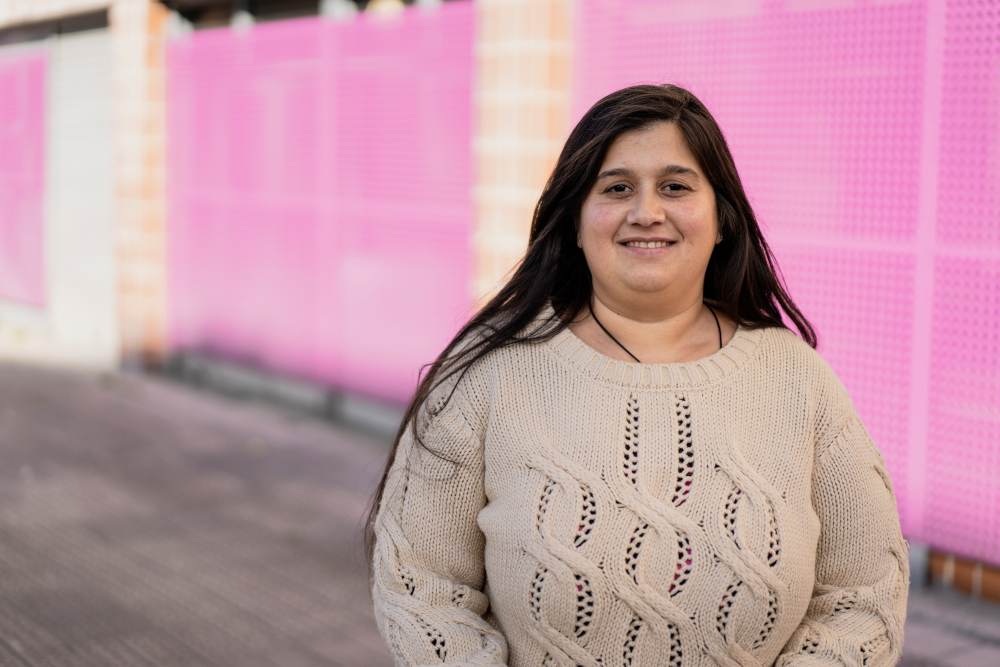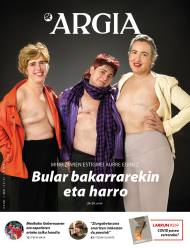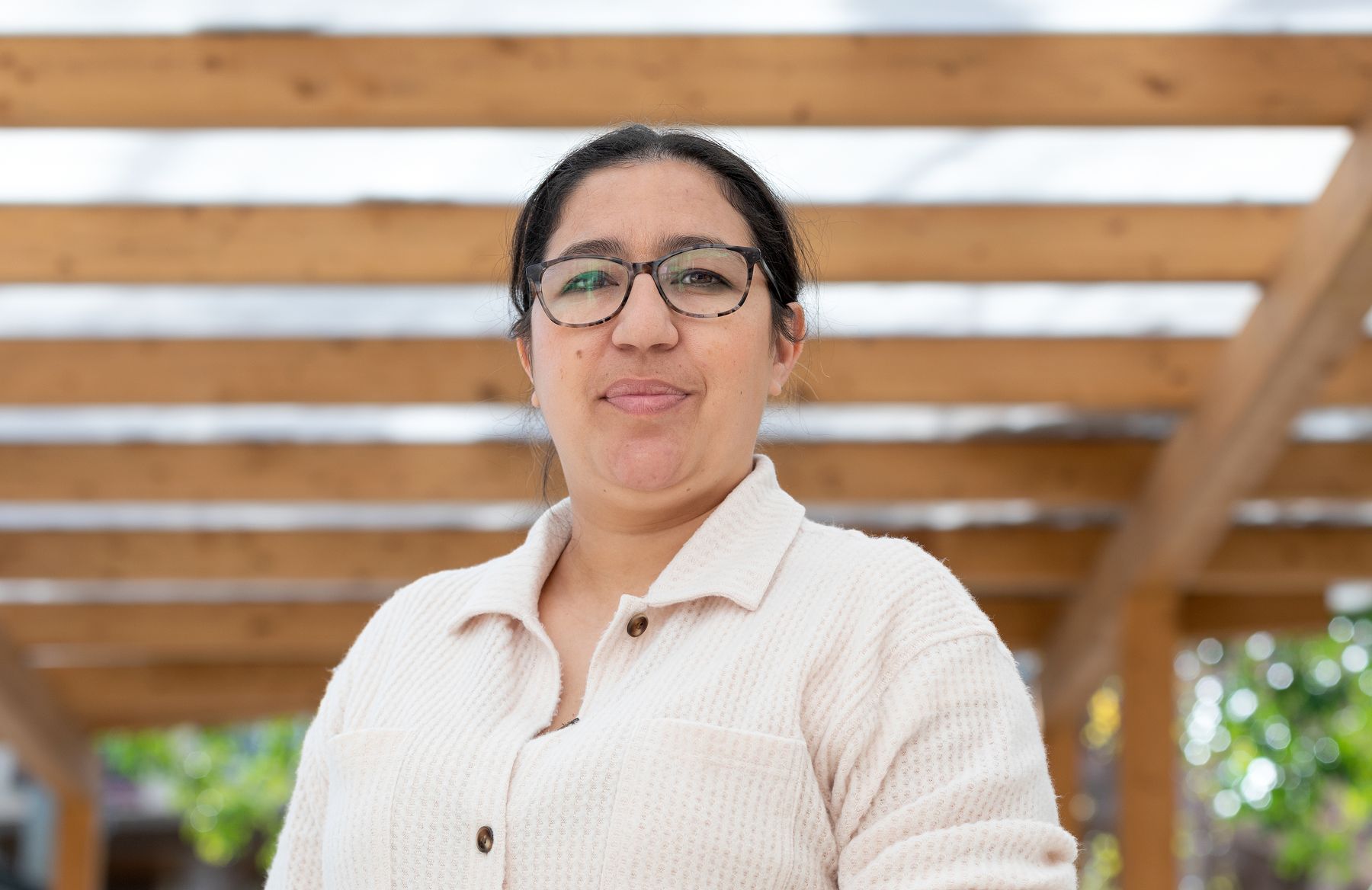“An image of the Roma people has been built and humanity has taken us away”
- The AMUGE, Association of Gypsy Women of the Basque Country, is based in Otxarkoaga (Bilbao), where the vice-president of the association Tamara Clavería was born in 1984. Their daily work is to combat machismo and racism against the Roma, and it is not an easy task. Clavería explains to us that anti-Gypsianism (if you allow us to use this word, in the absence of a clear Basque counter-performance) is a very deep root tree.

AMUGE was born in 2003. For what purpose? Defence
and promotion of the rights of the Roma people and, in particular, the empowerment of Roma women. One of our first challenges was the incorporation of girls into the education system. In fact, we came from bridge schools, which were exclusively for the Roma. We also work in the area of prejudices about our country. The initial challenges continue, although all Roma children have been able to be schooled, school failure remains very high compared to what is in non-Roma society. The figure is that school failure is 64%, but it's the 2006 figure. One of the demands of these Roma associations is to investigate the situation of our people. We need information to work on the projects.
Is Roma feminism different?
Feminism is feminism. The only fight that Roma feminism does, and that is not hegemonic feminism, is against racism or, more specifically, against anti-Roma. That's what we do the feminisms of the third wave: black feminisms, Islamic feminisms, gypsies ... We are fighting racism in our lives, because we believe that the main reason for society to discriminate against us is for us to be Roma. And then women.
It is believed that the Roma people are more patriarchal...
This is anti-Gypsianism. Society tells non-Gypsy women that our men are more macho. And the very figure of the “patriarch” has also been attributed to us by non-Roma society. In particular, the media. Because in our culture there are no patriarchs. There are mediators, men and women, but there are no men who send the entire Roma community. The Roma image has emerged according to ideological and political interests since the implementation in 1499 of the project of denial of our presence by the [Spanish] kings. It was the first attempt to eradicate and enslavement the Roma population in Europe. Today’s society, for its part, says that our men are more macho, as if the patriarchal system did not cross non-Roma men and were sidelined by this kind of footsteps. But masculinity, in the gypsy community, is learned. Gypsy men have been told that they are more macho and that it is also the same as being Gypsies. That is very perverse. We in the AMUGE have 30 men who question their masculinity and do not add to the hegemonic masculinity.

He said that the data on school failure were fifteen years ago. Do you see any results from the work done
in the meantime?Primary Education has achieved full schooling of the Roma, and that is a success. We must not forget, as I say, that we came from bridge schools. They were banned in the mid-1980s. We are moving forward, but very slowly, and the percentage of Roma in higher education is still very low. More resources are needed and, in the absence of quantitative and qualitative analysis, no specific measures are taken to ensure that Roma students are successful. Other data indicate that there is great segregation. The goal is to achieve an inclusive and quality school, and the segregated school is quite the opposite. It only has relationships with gypsies and migrants, and in these cases the level of education is usually low. For example: In Otxarkoaga until this year we have not managed to implement model D after 30 years of struggle. It is shameful to have had to spend 30 years claiming the right to study in Basque.
Why are we so racist about the Roma people?
By historical construction. The Roma have been dehumanized, and that is why we call for anti-Roma to be a crime. Romaphobia is a hatred of the Roma, but anti-Roma is cultural, systemic. Historically we have been accused of being thieves, we have been forbidden to work in trades and to have livestock ... It is a construction of ideological interest, control of others, containment of the system of power. They've been told that we're like this, and humanity has taken us away.
I was struck by something I mentioned in a video in which the Roma take less care of themselves, eat worse...The life expectancy of the Roma is 20
years shorter, and even lower in the case of women, unlike the non-Roma society. But that, for example, is to blame the victims. On the one hand, of course, the low socio-economic level decreases the quality of life, but on the other hand, anti-Gypsianism causes us stress. One concept that we now use a lot is the stress of ethnic minorities. This makes us sick: anxiety, depression... It is clear that we have to improve our health, do more sport... but let us not forget that two out of three Roma families do not have their basic needs covered. And the pandemic makes everything worse. The current situation of the Roma people is very worrying.
the age of 17, I started volunteering in Roma associations. And I got the high school graduate when I was 21. This is common practice. I had to stop studying to help the family financially. My mother was sick and had to go to the market. After I got the high school graduate, I started studying. In 2010, I started a higher degree in Social Integration, and now I'm in college, studying Social Work. When you hear me speak, when I see that I have studies, when I know that I'm a feminist -- the tendency is to delaminate. They say I'm not so gypsy. And that makes me angry. Because I am a Gypsy of pure strain.”
Being a Roma has long been banned in different parts of Europe, and, of course, our beloved and welcoming state in Spain and France too. That is why, for a long time, the Roma did not claim to be Roma. And that's why historians have a very hard time knowing their story and giving... [+]
Imagine that for an institutional barometer you're asked, "How do you see white people compared to the rest of society: more conflicting/more honest/more working-class/more supportive?" Would it be exceptional? On the occasion of the International Day against Racism and Xenophobia, 21... [+]
Do you know that April 8 was International Roma Day? And you know why? If you look for it on Google, you can see that the first Romanesque world congress was held in London on April 8, 1971, and our flag was remembered there (do you know?). and our hymn, gelem, gelem (have you... [+]
Also on International Women’s Day, the feminist Roma want to be visible and contribute to the integration of the fight against racism in the feminist movement. To this end, it is essential to make known the realities of racialised women and, in particular, gypsies. Otherwise,... [+]
Bi txano zeramatzala argudiatuta (jertsearen txanoa eta zamarrarena, irudian ikus daitekeen moduan), tiketa erakusteko eskatu dio neska gazte bati Iruñeko Zarako segurtasun arduradunak, dendatik ateratzean. Ez hanka ez buru ez duen argudioa aitzakia hutsa dela eta... [+]























